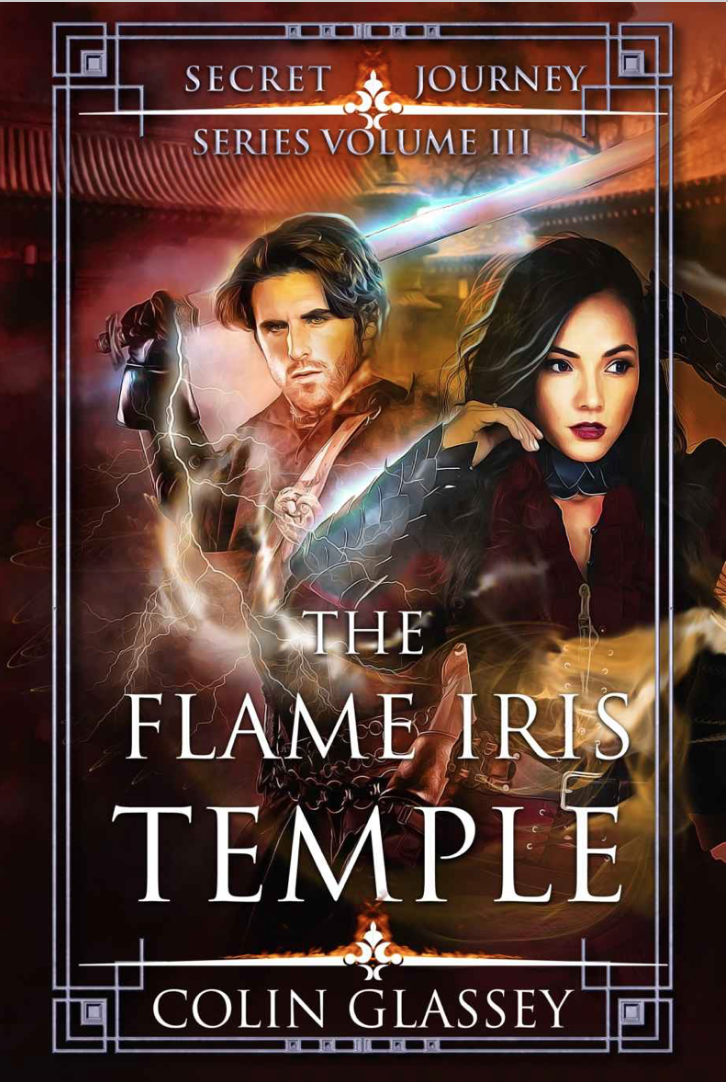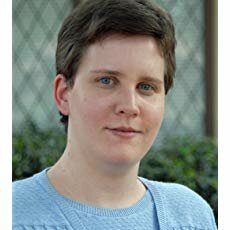Colin Glassey published multiple books on Asian history before he moved into historic fantasy. He recently published his third historic fantasy novel in three years. And I had the opportunity to interview him.
Tamara Wilhite: What inspired you to write A Thousand Blocks of Jade, Vietnam from 800 to 1800?
Colin Glassey: My first wife was born in Saigon. She came to this country just before South Vietnam was conquered by North Vietnam.
Having grown up the Bay Area I was somewhat familiar with Asian culture before I met her but naturally, when I met her, and her family, my interest became more focused on Vietnam. Over the decades, I continued to do reading in the history of the country for my own interest. It did not take long to discover I that good histories of Vietnam before the American involvement began were almost all written in French. So I tried to add a little to the knowledge base for the English-speaking world. Since I wrote my book, several better histories of Vietnam have been written in English.
Tamara Wilhite: And how did you end up collaborating with Hoi-Young Jeong on books like Snow Water?
Colin Glassey: Hoi-Young was a writer in South Korea before I met her. This was after my first marriage had ended. We had a wonderful creative time together but the relationship did not last.
Tamara Wilhite: What I find interesting is your sudden foray into fantasy writing after working for years in IT and law. What happened?
Colin Glassey: Law is all about writing. Trial lawyers write for a living; very, very few of us ever get to play “Perry Mason” in court. However, legal writing has its own characteristics. You cannot – ever -write something which is not legally defensible – creative license is not allowed!
I woke up one morning, and I suddenly had the idea for a novel. I wrote down the basic outline for the plot and I just kept going. I enjoyed the law, just as I liked I enjoyed programming software, but I haven’t felt a strong urge to return to it.
Tamara Wilhite: You’ve published three historic fantasy novels to date, all part of the The Burning Tower series. Can you tell me about it?
Colin Glassey: The story derives from an idea I had: what if a group of English knights journeyed to China at a very specific, and to me very interesting, point in China’s history? Then I changed the history, the geography, and the backstory of the world. Real history is terribly complex, and rarely makes for a good story. Too many characters, too messy, too many absurdly unlikely events.
So, these novels take place in “my world”. My knights are not from England. They go to a place which is not quite China. My world is like Earth, but not Earth. I have my own document which describes some of the ways my world differs from the real world.
Tamara Wilhite: Is The Flame Iris Temple going to be the final book in the series?
Colin Glassey: No. There is more to the story, but when I will write that “more” is unclear. My new book series is set some 200 years later.
Tamara Wilhite: The first two books in your fantasy series are already available in audio book format, while you’re working on the audio book for The Flame Iris Temple. I have some familiarity with that process, having published my own short story collection Humanity’s Edge in audio book format. What led you to do the narration yourself?
Colin Glassey: I did a little acting in high school and I like theater. In fact, I am working on a play right now. I believe I have a pretty good voice and a feel for drama. Also, my eldest son refused to read my novels but would listen to them as he commutes to work so that was a big factor for me. The audiobooks are fun for me to create. I even included short segments of music at the start of each chapter to add some color to the narration.
Tamara Wilhite: How have your travels through East Asia influenced your writing?
Colin Glassey: Travel for me has been a huge influence. Over the last 15 years, I spent two months in South Korea, three weeks in Vietnam, three weeks in China, a week in Taipei. I think pretty carefully about what I am seeing and why it exists.
Also, I pick what I visit with an eye for how old it is. Shanghai is fairly boring to me, while Beijing is vastly more interesting. My fiancée and I were going to Japan this spring but those plans were canceled thanks to the global pandemic. C’est la vie. Travel through the USA is also very important to me because my novels use the geography of the United States. My characters started in California and headed east.
My version of China is physically located in the eastern half of the United States (with some important modifications). I haven’t spent much time in that part of the USA so it’s a bit of an imaginary landscape for me.
Tamara Wilhite: And what else has influenced your writing?
Colin Glassey: I am “old”, so I have done a great many things. My characters aren’t teenagers who by luck happen to have the power to save the world. My characters have training, knowledge, and experience.
I grew up reading all manner of fantasy books but my two main influences are Tolkien and E.R. Eddison. They were both middle-aged men who started writing about capable adults doing hard things in a believable manner. That is my goal as well. My characters are not saving the world, but they are trying to make it a better place.
Tamara Wilhite: Is there anything you’d like to add?
Colin Glassey: In my opinion, the most important knowledge we in the USA (and Europe) are missing, is an understanding of traditional Confucian culture. China is right now the second most powerful nation in the world. Soon, it will be the most powerful nation in the world. The days when the USA and Europe could safely assume that China was merely a poor and unimportant nation are over. We need to understand China at a deep level, both its weaknesses, and its strengths. In a real sense, China’s rise to great power status has taken most people by surprise.
I hope to portray China, as it once was, with some degree of insight, in the hope that this will help Westerners understand this remarkably complex and important culture.



Comments
Leave a Reply